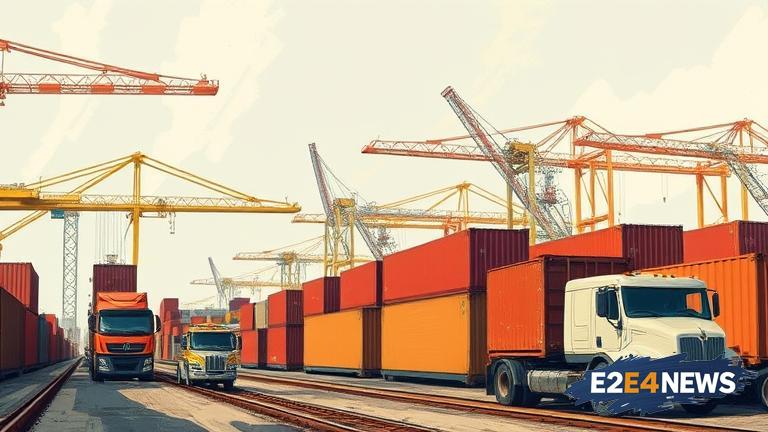The imposition of tariffs by the Trump administration has been a subject of intense debate and discussion. Proponents of tariffs argue that they are necessary to protect domestic industries and jobs, while critics contend that they are a form of protectionism that can have devastating consequences for the global economy. The recent trade war between the US and China is a case in point, with both countries imposing tariffs on each other’s goods. The effects of these tariffs are already being felt, with prices rising and businesses struggling to cope with the increased costs. The US has imposed tariffs on a wide range of Chinese goods, including electronics, machinery, and textiles. China has retaliated by imposing its own tariffs on US goods, including soybeans, aircraft, and automobiles. The trade war has also had a ripple effect on other countries, with many of them caught in the crossfire. The European Union, for example, has imposed its own tariffs on US goods in response to the Trump administration’s decision to impose tariffs on steel and aluminum imports. The consequences of these tariffs are far-reaching and can have a significant impact on the global economy. They can lead to higher prices, reduced consumer choice, and lower economic growth. They can also lead to trade diversion, where countries seek to avoid tariffs by exporting goods to other countries. Furthermore, tariffs can lead to a decline in international trade, which can have a negative impact on economic growth and development. The World Trade Organization (WTO) has warned that the trade war between the US and China could have a significant impact on the global economy, with the potential to reduce global trade by up to 1%. The WTO has also warned that the trade war could lead to a decline in foreign direct investment, which is critical for economic growth and development. In addition to the economic consequences, the trade war has also had a significant impact on the political landscape. The Trump administration’s decision to impose tariffs has been widely criticized, with many arguing that it is a form of protectionism that can have devastating consequences for the global economy. The administration’s decision to impose tariffs on steel and aluminum imports, for example, has been criticized by many countries, including Canada and Mexico. The trade war has also had a significant impact on the US economy, with many businesses struggling to cope with the increased costs. The US Chamber of Commerce, for example, has warned that the tariffs could lead to the loss of up to 400,000 jobs. The trade war has also had a significant impact on the agricultural sector, with many farmers struggling to cope with the loss of exports to China. The US has imposed tariffs on a wide range of Chinese goods, including soybeans, which are a critical export for many US farmers. The trade war has also had a significant impact on the technology sector, with many companies struggling to cope with the increased costs. The US has imposed tariffs on a wide range of Chinese electronics, including smartphones and laptops. The trade war has also had a significant impact on the automotive sector, with many companies struggling to cope with the increased costs. The US has imposed tariffs on a wide range of Chinese automotive parts, including engines and transmissions. In conclusion, the imposition of tariffs by the Trump administration has far-reaching consequences, affecting not just the US but the global economy as a whole. The trade war sparked by these tariffs has the potential to reduce global trade, lead to higher prices, and lower economic growth. It is essential that countries work together to reduce trade barriers and promote free trade, rather than resorting to protectionism. The WTO has a critical role to play in promoting free trade and reducing trade barriers. The organization has been working to promote trade liberalization and reduce trade barriers, and its efforts have been critical in promoting economic growth and development. However, the WTO faces significant challenges in promoting free trade, including the rise of protectionism and the increasing use of tariffs. The organization must work to address these challenges and promote free trade, rather than resorting to protectionism. The US and China must also work together to reduce trade barriers and promote free trade. The two countries have a critical role to play in promoting economic growth and development, and their actions can have a significant impact on the global economy. It is essential that they work together to reduce trade barriers and promote free trade, rather than resorting to protectionism. The trade war sparked by the Trump administration’s tariffs has significant implications for the global economy, and it is essential that countries work together to reduce trade barriers and promote free trade.
